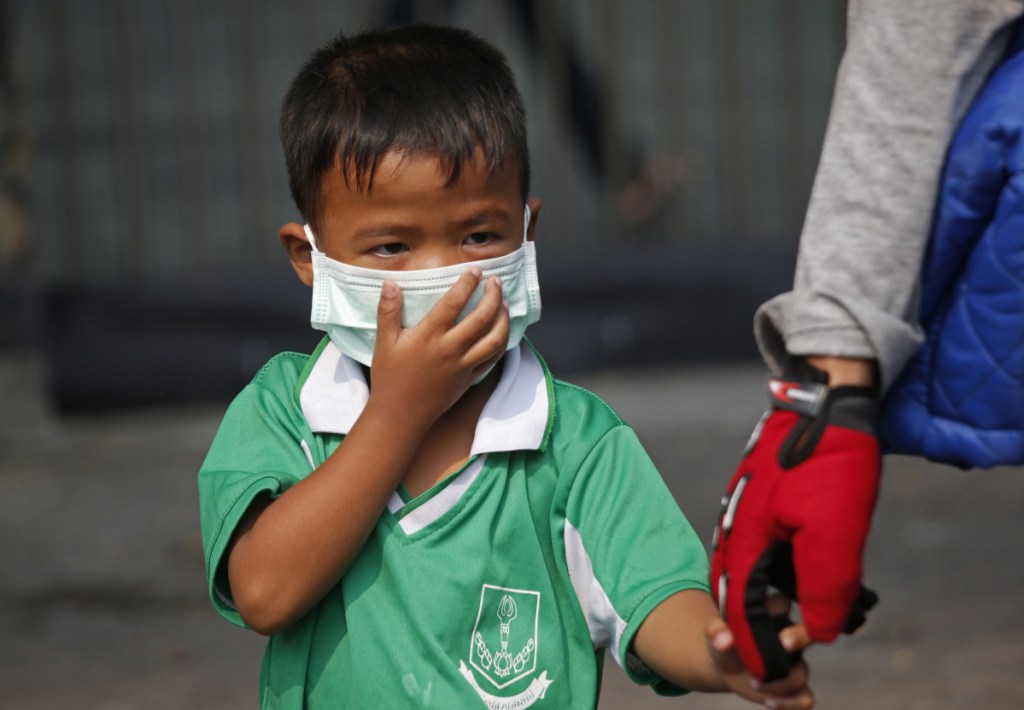BANGKOK — A fleet of drones, trucks and small planes sprayed water to try to reduce air pollution around Bangkok on Thursday while the city’s governor invited critics to brainstorm better ideas to improve the air quality in the Thai capital.
Unhealthy pollution levels forced city schools to close Wednesday for the rest of the week, and the Public Health Ministry advised against outdoor activities.
Faced with public discontent as well as a possible health crisis, Bangkok’s governor, Police Gen. Asawin Kwanmuang, declared the city a “pollution control zone,” allowing firmer measures such as road closings and limits on diesel exhaust, outdoor burning and construction activities.
Prime Minister Prayuth Chan-ocha ordered inspections of factories to measure the pollution they are emitting. But he warned that implementing radical solutions could cause inconveniences that people might be unwilling to accept.
“To ban vehicles or to ban vehicles on odd and even dates, will people accept that?” he said. “If we provide (more public) transportation, will people use it?”
Even long-term measures raise questions, he said. “At the moment, we can improve the efficiency of cars and convert buses to use NGV gas. Are we ready to spend the budget for whatever it will cost?”
The measures proposed this week would focus on what are generally considered the main sources of Bangkok’s air pollution, particularly vehicle exhausts, especially from diesel engines. Open burning and emissions from factories and power plants also are major problems, along with dust from construction sites.
Some scientists have speculated that smoke and haze from Thailand’s less-developed eastern neighbor, Cambodia, also drifted into Bangkok, stirring up a bit of eco-nationalism, but the government’s Pollution Control Department said evidence did not support this theory. Parts of northern Thailand, however, do suffer an annual air pollution crisis due to fires from slash and burn agriculture and other causes in remote rural areas and in another neighbor, Myanmar.
In Bangkok, the crisis-level pollution, along with public awareness, has been spurred by meteorological events that trap the noxious pollution. These include a thermal inversion, which keeps the dangerous particles closer to the ground, and weak winds.
Send questions/comments to the editors.



Success. Please wait for the page to reload. If the page does not reload within 5 seconds, please refresh the page.
Enter your email and password to access comments.
Hi, to comment on stories you must . This profile is in addition to your subscription and website login.
Already have a commenting profile? .
Invalid username/password.
Please check your email to confirm and complete your registration.
Only subscribers are eligible to post comments. Please subscribe or login first for digital access. Here’s why.
Use the form below to reset your password. When you've submitted your account email, we will send an email with a reset code.